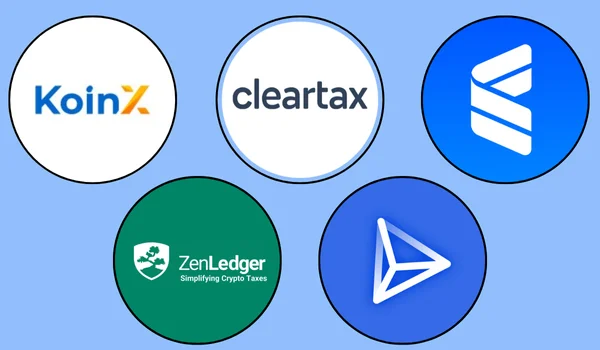In recent years, cryptocurrency has emerged as a fascinating yet controversial financial innovation in India. From Bitcoin’s stellar rise to the widespread interest in Ethereum, Solana, and meme coins like Shiba Inu, Indian investors have shown increasing curiosity. But there’s one question that’s constantly asked:
“Is crypto trading legal in India?”
If you’re new to this world and feeling confused by conflicting news and legal jargon, don’t worry. This guide will break it all down in simple, easy-to-understand language—along with the latest updates from the Government of India, RBI, and Income Tax Department as of 2025.
📌 Crypto Trading in India – Quick Legal Status Overview

| Aspect | Status in India (as of 2025) |
| Ownership of Crypto | ✅ Legal |
| Trading on Exchanges | ✅ Legal (regulated under FIU-IND) |
| Crypto as Legal Tender | ❌ Not recognized as currency |
| Tax on Crypto Income | ✅ 30% flat tax + 1% TDS under Section 115BBH |
| Use in Payments | ⚠️ Not recommended / discouraged by RBI |
| RBI Ban in Force? | ❌ No ban (Ban lifted in March 2020 by Supreme Court) |
🧾 What Does “Legal” Mean in Context of Crypto?
In India, trading crypto is legal, but that doesn’t mean it’s regulated like stocks or mutual funds. Crypto is considered a Virtual Digital Asset (VDA) under Indian tax laws — not a currency, not a commodity, and not a security.
Here’s what this means:
- You are allowed to buy, sell, and hold crypto assets.
- The government has implemented taxation rules, but no comprehensive regulatory framework exists yet (like SEBI for stocks).
- The RBI discourages its use for payment, but doesn’t ban investment or trading.
🏛️ Timeline: Crypto Regulations in India
| Year | Major Development |
| 2018 | RBI banned banks from crypto-related transactions |
| 2020 | Supreme Court lifted RBI’s ban |
| 2021 | Crypto Bill proposed but not passed |
| 2022 | Budget introduced 30% tax on crypto gains + 1% TDS |
| 2023 | FIU-IND mandated crypto exchanges to register and comply |
| 2025 | Exchanges under AML & KYC compliance, no blanket ban in place |
🔐 Is It Safe to Trade Crypto in India?
Yes, provided you trade on registered crypto exchanges and follow all KYC and tax rules.
FIU-IND Registered Exchanges in India (2025)
| Exchange | KYC Required | Supports INR? | Regulated by |
| WazirX | ✅ Yes | ✅ Yes | FIU-IND |
| CoinDCX | ✅ Yes | ✅ Yes | FIU-IND |
| ZebPay | ✅ Yes | ✅ Yes | FIU-IND |
| Mudrex | ✅ Yes | ✅ Yes | FIU-IND |
| Binance (global) | ❌ No (for INR) | ❌ No direct INR | Not FIU-IND |
Tip: Avoid using unregistered or foreign exchanges for INR transactions to stay compliant.
🧠 Crypto Taxes in India (2025)
From April 2022, India introduced a 30% flat tax on all profits from crypto trading. Here’s how it works in 2025:
| Tax Type | Rate | Details |
| Capital Gains Tax | 30% | No deduction except cost of acquisition; no set-off allowed |
| TDS (on sale/transfer) | 1% | Deducted at source if transfer value > ₹10,000 per financial year |
| Gift Tax (crypto gifts) | As per income slab | Taxable if gifted crypto value exceeds ₹50,000 |
You need to declare crypto gains under Income from Other Sources in your ITR (typically ITR-2).
🤔 FAQs – Common Beginner Questions
❓ Is it illegal to hold crypto in my wallet?
No. You can legally hold crypto in self-custody wallets like Metamask or hardware wallets.
❓ Can I use crypto to buy goods or services?
Legally possible but discouraged. The RBI does not recognize crypto as a legal currency. Using crypto for payments could lead to regulatory scrutiny.
❓ Will I be arrested for trading crypto?
No. As long as you trade through legal platforms, comply with tax rules, and don’t use crypto for illegal activities, you are protected under law.
🛡️ How to Stay Compliant While Trading Crypto
- ✅ Trade only on FIU-IND registered Indian exchanges
- ✅ Complete KYC and link PAN/Aadhaar
- ✅ Report income during tax filing (file ITR-2)
- ✅ Maintain records of trades, transfers, and wallets
- ✅ Avoid using crypto for purchasing prohibited goods/services
- ✅ Stay updated with government announcements
🏦 What Is RBI’s Stand on Crypto in 2025?
The RBI (Reserve Bank of India) maintains its cautious stance. While it does not support the use of private cryptocurrencies for payments, it supports technological innovation like blockchain and has launched its own CBDC (Central Bank Digital Currency) called the Digital Rupee (e₹).
RBI’s View: Crypto is a speculative asset class — not suitable for payments or storing national value.
📢 What’s the Future of Crypto in India?
The Indian government is working with global organizations like the FATF and IMF to build a global crypto regulatory framework. A formal Crypto Bill is expected, but as of 2025, no new legislation has been passed.
Key Expectations:
- A new regulatory body may be assigned (like SEBI)
- More investor protection mechanisms
- Stricter KYC/AML norms
- Recognition of crypto as an asset (not currency)
✅ Final Thoughts
So, is crypto trading legal in India?
Yes, it is legal, but you must follow the rules:
- Trade responsibly
- Pay your crypto taxes
- Avoid shady platforms
- Stay informed
The Indian government is not banning crypto but ensuring it doesn’t become a vehicle for illegal activities or financial fraud. This is a great time for informed investors to explore crypto with proper education and risk management.
👨🏫 Pro Tip: Want a crypto portfolio under ₹5,000 with tax tracking and safety tips? I can help you build one as per your goals — just ask!





